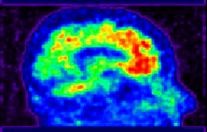Australian Imaging, Biomaker and Lifestyle Flagship Study of the Ageing
SIEF supported research into the understanding and early identification of dementia, primary Alzheimer’s disease.
The challenge
Australia, like many other countries worldwide, is facing a dementia epidemic. The disease, which causes memory and functional loss, leads to significant loss of productivity and participation in the community. The average person with dementia survives between 4 -10 years with increasing disability; this affects the wider community both socially and economically.
In order to combat these problems, new diagnostic tools are required to enable the early detection and ultimately prevention of dementia. Alzheimer’s disease (AD) accounts for the majority of dementia patients nationally and as such it is a crucial area of focus, with researchers seeking to provide insight into the type of dementia and its underpinning mechanisms.
The response
At present, clinical diagnosis of dementia is only possible once severe damage has occurred to large numbers of brain cells. However, new research has identified blood based biomarkers which may act as a foundation for early identification of individuals at risk of Alzheimer’s disease, and which will equal a simple but effective blood test in the future. Coupled with advanced neuroimaging developed by this study, a person’s predisposition to develop Alzheimer’s disease can be determined.
Early intervention studies, based on lifestyle factors such as physical activity and diet, are also vital research identifying lifestyle choices that may help slow the onset and severity of Alzheimer’s disease.
The collaboration
The Australian Imaging, Biomarker and Lifestyle Flagship Study of the Ageing is a crucial collaboration between CSIRO, Edith Cowan University Mental Health Research Institution, The National Aging Research Institute, universities, health care providers and hospitals, advocacy and support groups as well as the private sector. This longitudinal study is following more than 1,100 people over the age of 60 for 7.5 years, to gain a better understanding of early detection and preventative measure for adult dementia.
Projected impact
The primary benefits of this research relate to all Australians. The research will be able to inform government policy makers on the best approaches to assist in the eduction of morbidity and mortality of this disease. The economic and social benefits could include the following:
- Early detection and intervention, allowing the onset of the disease to be delayed through diet, exercise, lifestyle and in some cases medication.
- Reduction of financial pressures on the health care system and the Australian community.
- Education of the Australian community regarding the disease and preventative measures, to assist those who are genetically or biologically susceptible to the disease.
- The eventual lowering of incidence, or severity of the disease.
Download: Australian Imaging, Biomaker and Lifestyle Flagship Study of the Ageing brochure
